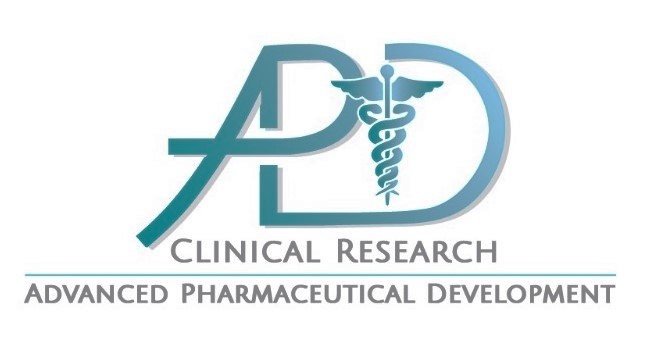Frequently Asked Questions
Advanced Pharmaceutical Development Clinical Research
Clinical research is the studying of medications and diseases in a group of participants to find new and advanced ways to treat, diagnose, and prevent disease. The purpose of clinical trials is to study if a new test or treatment works and is safe.
Participating in a trial will lead you to an active role in maintaining your health. Healthy individuals contribution to medical research will help improve quality of life and further scientific knowledge. Affected individuals will receive the newest treatments and receive detailed care and monitoring from the clinical trial staff.
- Studies are conducted following strict protocols, ethics, and laws. It also varies by study. However, testing of new medication may be ineffective or cause side effects. Depending on the trial, you may be asked to stop taking current medication which could potentially raise health concerns.
- Benefits of clinical trials include getting a new treatment before it is available to everyone. You may receive free more detailed and frequent medical care and checkups.
Every trial has guidelines or requirements of individuals. These guidelines are called exclusion/inclusion criteria. The criteria differs for each trial and has various factors like age, gender, medical conditions, etc. To find out if you’re eligible for a study, reach out to us and we’ll provide you with a pre-screener and determine if you can participate.
All information is protected and confidential according to the HIPAA law.
No, participants do not have to pay. Participants may receive compensation.
Informed consent is a process where you are provided with all information about the trial in detail, including risks, benefits, treatment, etc. Participants needs to give permission to be a part of the trial, which is documented and the participant is given a copy. All trials are voluntary.
Each study is different. After a pre-screener, at least 4 visits are required, but it can be more depending on the trial.
Each study is different. After a pre-screener, at least 4 visits are required, but it can be more depending on the trial.
No, we are not allowed to disclose any information until it is approved by authorities.
You will see a doctor every visit.
We recruit our participants through many different ways for example referral from doctors and patient databases. Everyone is welcome to reach out for a recruitment if they’re interested.
We gather our data through paper documentation.
Yes. Compensation varies depending on the trial, but you are required to participate for the entirety of the trial and follow all rules.
Yes. This is a part of the informed consent process, you will always receive a copy and can always ask for more.
If you are eligible for the study and have given consent to participate, all we require is for you to show up to all your appointments on time and follow all of the rules dedicated to the study. Failure of accurate participation may result in withdrawal and no compensation.
No. Only a few team members have knowledge of who is on the treatment and who is on the placebo. This information is limited to a handful of people to limit bias that may arise if many people know. So we cannot tell anyone what they were on during or after the study.
Each study is different, reach out if you have questions about a trial. You will also be told all information during the informed consent process.
This varies by each trial. You will be provided with detailed instructions on how to prepare for each visit. Call us if you have any questions.
There may be potential side effects. This is the purpose of all clinical trials, to monitor a new treatment and all possible side effects and treatment success. You will constantly be monitored and cared for. Make sure to mention all side effects you may be having during your visit.
You may be asked to stop specific medications for a trial if it may hinder or alter the effects of the observed treatment. This varies by every trial and you will be told what is expected of you to participate.
No. You may be required to have a medical diagnosis for some studies, for example migraines for a migraine study, but there are studies where we need healthy individuals.

